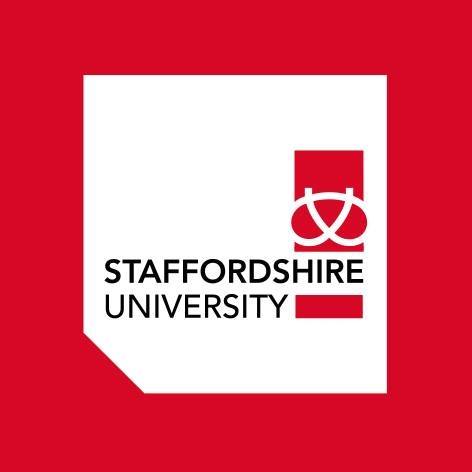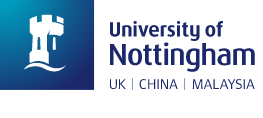Do you have a passion for physical wellbeing and health? Eager to support the next generation with athletes with injury management, sports psychology, and nutrition? Have you considered careers in health, sports science, coaching and business management or assisting in local government initiatives?

Summary
Do you have a passion for physical wellbeing and health? Eager to support the next generation with athletes with injury management, sports psychology, and nutrition? Have you considered careers in health, sports science, coaching and business management or assisting in local government initiatives? If you have answered “yes” to any of the above, then A Level PE could be for you!
A Level PE immerses learners in contemporary issues in sport and performance analysis, whilst expanding on knowledge acquired on the key bodily systems from GCSE and BTEC pathways. You will have the opportunity to explore issues such as why athletes take drugs in sport as well as learning about the history and heritage of sport in the UK.
Physical Education is taught on the AQA exam board and is a linear qualification. This means that the two external examinations are undertaken at the end of year two. A Level PE is made up of two examinations, a written piece of coursework that analyses your own performance and finally, a practical performance as either a coach or performer in one sport only. The coursework is worth 30% of the overall qualification
Entry Requirements
A minimum of five GCSEs at grade 4 and above, including English Language and Maths.
A grade 6 in GCSE PE; or a minimum of grade 5 in GCSE Biology or 5-5 in GCSE Combined Science.
Course Content
You study six units over the two-year A Level.
Anatomy and Physiology’: This is where you will learn about the key fundamentals and systems that allow our body to work efficiently. This includes work on the heart, lungs, muscles, bones, and energy systems.
Skill Acquisition’: An opportunity to delve into the learning of skills. Skill Acquisition follows on from GCSE by building on work undertaken on reaction time, skills continua, transfer and guidance and pairs this with memory, schema, and practice types.
History and Sociology of Sport’: Interested to know where sports such as association football originated from or what makes a sport equitable? This unit will capture your interest. Looking at the origins of Tennis from the time of Henry VIII, to exploring modern contractual issues surrounding performers, this unit explores the history of the sport in the UK.
Biomechanics and Exercise Physiology’: A module centered on sports injury, rehabilitation, and prevention along with some applied mathematical principles that make the difference between winning and losing. We explore concepts like angular momentum, fluid mechanics and manipulation of training methods.
Sport’s psychology’: Interested in knowing why teams gel or how to support athletes following injury? This unit explores reasons elite athletes give for success and failure through attribution, through to team dynamics and effective leaders and coaching principles.
Contemporary issues’: In this unit we look at some of the issues surrounding sport now. Think drugs in sport, the development of technology and its impact as well as how the law regulates sport. An interesting and insightful look into how modern issues are affecting performers and the development of sports.
Progression Routes
At several HE (Higher Education) institutions A Level PE is viewed as a life science. PE can open the doors to apprenticeships, coaching roles, personal training courses as well as traditional university routes in pathways such as sport and exercise science, teaching, physiotherapy, and osteopathy.
Some of our learners choose to complete A Level PE alongside their academy. You may wish to combine your study of PE with other sciences, such as Biology, Food Science and Nutrition, Psychology or Applied Science, or combine it with a humanities-based subject such as Sociology or History.
Additional Learning Opportunities
The learning journey in A Level PE will be interspersed with trips to places like Wimbledon, the Velodrome, Ice Skating, and some of our local University partners.
Many of our Physical Education learners are also part of our Sports Academy where you can combine your studies with an elite sporting programme. We also have a Sixth Form Talks series which includes talks from universities that offer sports-related courses and talks from academics about their research in this area.
The Sixth Form
SGS Sixth is located in its own dedicated building, called 'A Block'. It is located over the road from the main campus at SGS College Filton.
Sixth Form learners are able to access the facilities of the main college, however the Sixth Form is only open for Sixth Form learners to access.
The Sixth Form building contains all of the facilities our Sixth Form learners need, with its own car park, library, study zones and coffee shop. To take a tour of our wonderful campus site, please see the 'Sixth Form Tour' section.
Sixth Form Library
The Sixth Form library is a place to study, take out books and work with others in a quiet space. It is also where many of our Sixth Form talks take place.
There is a variety of places to be able to charge a laptop or device, computers to use and space to study both individually or as a small group.
Our library staff will be able to help you take out books or advise you about how you can access study skills sessions or wider support.
The library is a food-free zone, although bottled water is allowed.
Sixth Form Coffee Shop
The Sixth Form has its own coffee shop, serving a range of hot and cold drinks, sandwiches, meals and snacks. It is also a place to be able to eat lunches you may chose to bring in, socialise or study with friends.
Our coffee shop is a cash-less coffee shop and learners with Free College Meals can purchase items using an app. Our learners are also able to access the bigger refectory for SGS College on the main college site over the road.
Opening Times
The Sixth Form is open from 08:00 - 17:00 every day for learners to be able to use the facilities and study. This is especially useful for learners who may struggle to find a quiet place to be able to struggle at home.
The those wanting to study later, the main campus of SGS College over the road from our building is open later on some days of the week.
Sixth Form Tour
Take a look around our Sixth Form! Click on the box below to be able to walk through our Sixth Form campus.
Study Zones
On every floor of the Sixth Form are dedicated areas for learners to be able to study in their independent study periods.
The ground floor contains a quiet study zone outside the Maths classrooms, on the first floor is a silent study zone outside the History classroom, whilst outside the Library is a collaborative study zone for learners to be able to work together on projects which might be too noisy for the library.
Driving to the Sixth Form
The Sixth Form benefits from its own car park located to the rear of the building for those who have passed their driving test. See our parking page for more details on how to register for a free parking permit.
Within the car park there is also space for motorbike parking and parents also receive 20 minutes free parking to pick up and drop off learners at the beginning and end of the day.
Bicycles, Scooters and Buses
Bicycles can be locked up in our bicycle store outside of the Sixth Form, whilst there is also a Tier electric scooter station outside the Sixth Form on the A38. For those who travel by bus, there is bus stops on both sides of the A38 directly outside the building.

On the PGCE, you’ll get hands-on experience on placement and will discover creative ways to teach English, with guidance from our experienced staff. You’ll also draw on newspapers, advertising and film.

Our Primary PGCE course will support you in your ambition to become a confident, engaging and research-informed teacher, who , in turn, enables pupils to reach their full potential in the classroom and beyond.

The Level 3 Award in Education and Training course is a foundation level qualification for teaching in the lifelong learning sector (post-compulsory education for anyone aged over 16).

This part-time qualification is ideal for adult learners looking to work with children between birth and 5 years, and gain knowledge of working with children up to 7 years. As a Level 2 Early Years Practitioner, you’ll play a vital role in supporting the social and physical development of childre...

Our BTEC Level 3 Extended Diploma in Sport provides students with the skills, knowledge, learning and experience to gain industry, recognised qualifications in the sport industry with opportunities to represent Nottingham Forest in the Community & Education Football Alliance.
© 2025 coursetakers.com All Rights Reserved. Terms and Conditions of use | Privacy Policy